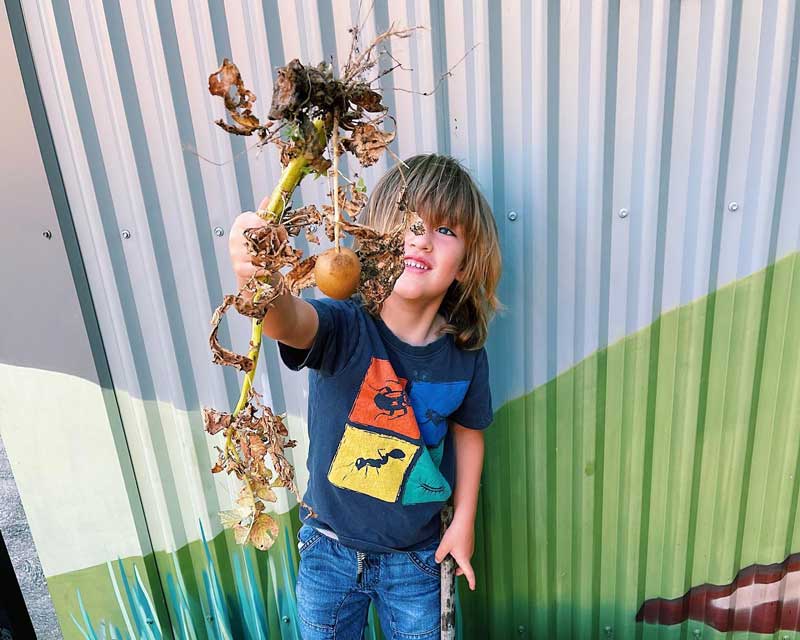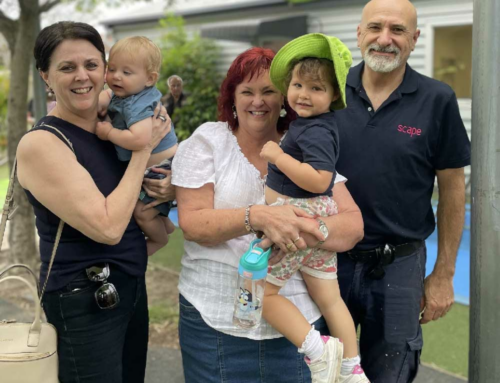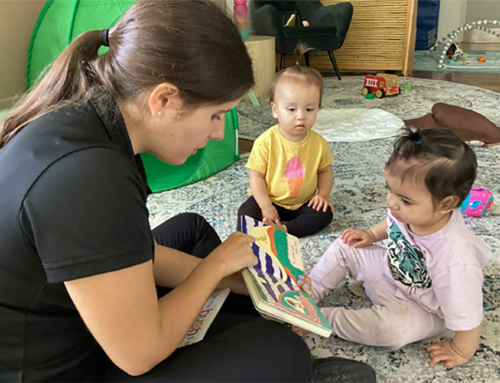Gardening with preschoolers is a healthy, enriching experience. It presents children of all ages with a world of curiosity and excitement. Add to this the enormous benefits of growing your own food in the garden and seeing it on your plate.
All families can enjoy a gardening experience. Don’t have an outdoor space? No worries! You can also plant herbs and other edible plants in pots for an indoor garden.
And gardening with children can lead to many other incredible experiences and life lessons. For example, you can turn green kitchen waste into compost and repurpose different types of containers as pots.
Children benefit from simple gardening practices. Whether helping out in the garden or looking after potted plants, children gain a sense of responsibility for nature and an appreciation for how things grow.
In this article, we explore:
- The benefits of gardening with children
- Which seeds are easy to grow for preschoolers and toddlers
- Additional gardening activities at home
- Indoor and outdoor gardening tips for children, including safety

What are the benefits of gardening with children?
Gardening engages children in many different ways. A key benefit of gardening for preschoolers is that it nurtures a sense of belonging. It creates a connection with the spaces where people garden and those who are gardening there.
Because of the many benefits associated with gardening, it is a popular experience among early childhood education and care service. Most of all, when children garden, it enriches their lives and learning.
1. It encourages movement
When children and adults garden, they engage in moderate physical activity. Digging soil, raking, bending down to remove weeds, potting, planting, leaning forward to cut leaves or shoots and holding a watering can get children active and exercising.
Children’s regular garden experiences create a healthy routine and promote physical literacy. And of course, time spent gardening is good for older people too.
2. It promotes mental health and wellbeing
Studies prove that gardening creates social and community connections. It is also good for children’s mental health and wellbeing, promoting resilience, reducing stress and improving children’s ability to self-regulate and relax. It also builds their self-confidence.

3. It encourages sensory exploration
Gardening engages all the senses. Sensory exploration is essential to children’s learning as it supports cognitive development.
You can create an inspiring sensory garden filled with vibrant colours, scents and tastes., where children can:
- Feel the soil, different plants, and the wind and sun when growing outdoors
- Smell fresh and damp earth and the fragrant scent of flowers
- Taste fresh fruits, vegetables and edible flowers
- See plants grow, and the soil soaks up water
- Hear bees and birds and the sound of the wind rustling through leaves and grasses
4. It develops motor skills
Turning over soil and mulch, playing with garden tools like rakes, shovels and buckets, digging, planting, watering, weeding and harvesting ripened plants and fruits requires children to develop gross and fine motor skills.
5. It broadens awareness and respect for the environment
Gardening can support children in becoming responsible and respectful of their environment. Knowing they are accountable for their seeds and for tending to them as they grow into plants, children also learn how to:
- Collect and conserve water
- Be patient while waiting for seeds to germinate
- Provide plants with sufficient nutrients through composting and sunlight
- Protect plants from insects
- Create an eco-friendly garden that promotes sustainability

6. It promotes play and learning
Children love to play, and the garden is an enticing space where children learn about all sorts of things and gain invaluable life skills. Spending time in the garden develops a child’s imagination where they can learn:
- Plant care
- Colours
- Literacy skills
- Numeracy
- The life cycle of plants and animals
- STEM
By asking children questions like, “What plants will encourage native bees to visit our garden?” families can engage children in STEM experiences that involve nature, animals, sustainability and nutrition.
7. It invites healthy eating and awareness of nutrition
Children feel more inclined to consume healthy foods when growing herbs, fruit and vegetables and then helping out in the kitchen, where they can also help turn their plants into healthy meals.
When children grow food, it can spark an interest in how food goes from the garden to the table. Likewise, inviting children to help plan the family garden can lead to a life-long interest in healthy eating habits.
8. It supports family traditions
Keeping a garden is a healthy family custom. It can include multiple generations, from grandparents down to the youngest child. A homegrown herb, vegetable, or salad garden can spark hours of family fun.
Although babies are often considered too young to be in a garden, safe and secure garden spaces provide incredible sensory experiences.

Easy seeds to grow for preschoolers
Growing and consuming homegrown food has its advantages:
- It is flavoursome and nutrient-rich
- The connections made from the garden to the table have a therapeutic and holistic effect
- It is less expensive than store-bought food
- It helps the environment by reducing plastic waste used to carry fruit and veggies from the store
Much of what you will grow will depend on the soil and climate. Our list of suggested plants to grow with children includes those our children and educators grow at Petit Early Learning Journey.
We suggest growing the following plants in your edible garden because of their ease but also because of their sensory experiences:
- Carrots
- Potatoes
- Onions
- Spring Onions
- Pumpkin
- Baby tomatoes
- Corn
- Watermelon
- Rosemary
- Blackberries
- Lavender
- Sage
- Parsley
- Mint
- Chives
- Sunflowers
- Radish
- Salad leaves:
- Baby spinach
- Coral lettuce
- Iceberg lettuce
- Baby cos lettuce
- Strawberries
- Sweet peas
- Lemon balm
- Basil
- Corn
- Watermelon

About those carrots and other gardening activities
Carrots are a brightly coloured sensory vegetable. Besides being a favourite for their ease in growing, they are also versatile as they can be grown in deep pots for indoor gardening or outside in the ground.
Earlier this year, Petit ELJ Richmond grew some odd-shaped carrots. This experience led to the children questioning whether the plants were getting enough food. It then prompted further inquiry and learning about their knotted gnarly shapes.
At Petit ELJ Hamilton, children and educators helped our chef to create a delicious herb garden. Herb gardens are perfect for growing in small plant boxes, and many different herbs flourish on small window sills.
Several of our services also plant flowers to encourage butterflies, native bees and pollination. Planting different types of flower seeds and succulents to entice wildlife supports children in connecting with and contributing to their world.
At home, you can mix gardening with additional activities.
- Build a scarecrow together
- Start a family compost bin project for the garden
- Create and add signage to your garden. Use both signs and words to inspire learning
- Build a wind chime for the sensory garden
- Introduce native bees to improve pollination
- Collecting rainwater for the garden

Indoor and outdoor gardening tips for families and children
Growing plants with children
- Grow plants that you and your children enjoy eating
- Your location will impact what you can grow; try herb gardening with pot plants if you do not have a garden
- Select brightly coloured flowers and vegetables that grow quickly
- Engage children in the whole process of gardening, from planning and planting to harvesting
- Start with seeds in most cases. Although for potatoes, we recommend trying old potatoes that have begun to sprout so your child has more success growing them
- Give older children a gardening project that is their own to look after
- Give younger children a part of the garden where they can dig and discover worms
Child safety in the garden
- Use correct-sized tools for children rather than plastic toys
- Young children will need your supervision when gardening
- Empty water buckets rather than leaving them lying about
- Try organic gardening
- Keep chemicals and fertilisers out of reach and locked away
- Be a role model and show children how to garden safely
- Put garden tools like rakes away when they are not in use
- Ensure fences, paths, gates, nets, tools, and other resources are safe for children’s use
- Always wear hats and plenty of sunscreen
- Put up some shade like an umbrella while you and the children garden
Encouraging children to garden:
- To boost their confidence and interest in gardening, show their achievement to family and friends
- Help out with your child’s garden when they’re not looking. It will allow them to retain ownership of their garden bed
- Keep gardening simple

Nurture your child’s lifelong interests with Petit Early Learning Journey
At Petit ELJ, we believe all children are driven by their curiosity to explore and understand the world around them. Gardening and playing in nature is an important holistic experience where we encourage them to play and be active learners.
Children’s direct involvement with people, places and things creates invaluable connections and lifelong skills. We encourage all children to discover a sense of responsibility for nature and work together in harmony to solve life problems.
Give your child the best start in life with Petit Early Learning Journey.






